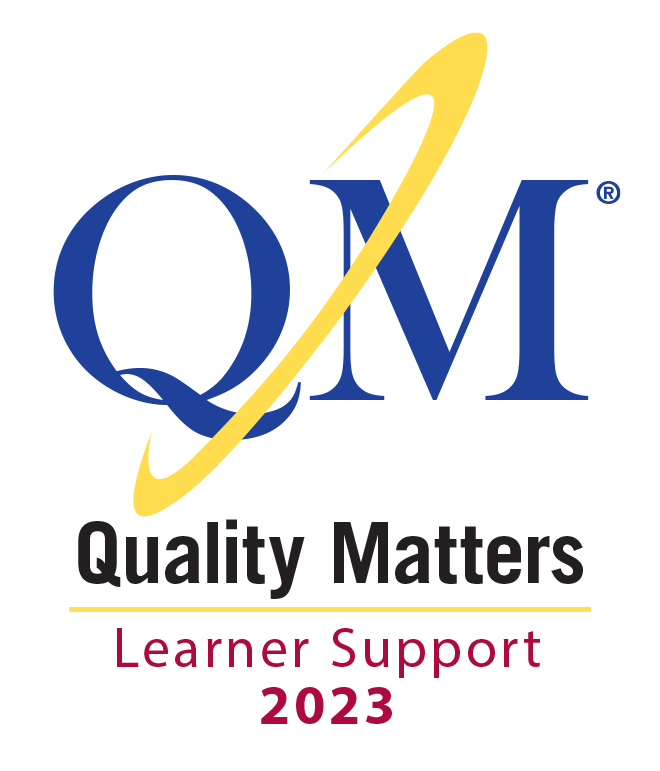Questions? Request Information
Degree Completion Journey
This master’s in early childhood education leadership online will give you a greater understanding of child development and the multiple influences on learning. Your advanced courses will increase your knowledge of the foundations, functions, and current challenges in the field of early childhood education.
To be awarded the Master of Arts in Early Childhood Education Leadership degree, all students must complete 30 credits with a 3.0 minimum grade point average.
Applicants to the Master of Arts in Early Childhood Education Leadership must have:
Earned a bachelor’s degree** from an approved accredited university in early childhood education or a related field; or Current or previous employment in the field of early childhood education.
**Unofficial or official transcripts showing an earned undergraduate degree in Early Childhood Education or a related field must be submitted with the Application for Admission.
An online degree from the University of Arizona Global Campus does not lead to immediate teacher licensure in any state. If you want to become a classroom teacher, contact your state's education authorities prior to enrolling at the University of Arizona Global Campus to determine what state-specific requirements you must complete before obtaining your teacher’s license. The University of Arizona Global Campus graduates will be subject to additional requirements on a state-by-state basis that will include one or more of the following: student teaching or practicum experience, additional coursework, additional testing, or, if the state requires a specific type of degree to seek alternative certification, earning an additional degree. None of the University of Arizona Global Campus online education programs are accredited by the Council for the Accreditation of Educator Preparation (CAEP), which is a requirement for certification in some states. Other factors, such as a student’s criminal history, may prevent an applicant from obtaining licensure or employment in this field of study. All prospective students are advised to visit the Education Resource Organizations Directory (EROD) and to contact the licensing body of the state where they are licensed or intend to obtain licensure to verify that these courses qualify for teacher certification, endorsement, and/or salary benefits in that state prior to enrolling. Prospective students are also advised to regularly review the state’s policies and procedures relating to licensure as those policies are subject to change.
Alabama Residents: State authorization to provide a program related to the preparation of teachers or other P-12 school/system personnel does not indicate eligibility for an Alabama professional educator or professional leadership certificate. Applicants who complete an educator preparation program at a non-Alabama institution must apply for an Alabama professional educator or professional leadership certificate through the Alabama Certificate Reciprocity Approach. Current requirements may be found at www.alsde.edu.
Georgia Residents: An education degree offered through the University of Arizona Global Campus' online modality does not lead to teacher licensure in the state of Georgia. In Georgia, an alternative route to certification is not available.
Hawaii Residents: An education degree offered through the University of Arizona Global Campus' online modality does not lead to teacher licensure in the state of Hawaii. In Hawaii, an alternative route to certification is not available.
Iowa Residents: An education degree offered through the University of Arizona Global Campus' online modality does not lead to teacher licensure in the state of Iowa.
Kentucky Residents: Please be advised that although the University of Arizona Global Campus' University Department of Education & Liberal Arts offers a variety of programs aimed at preparing potential educators in diverse settings, our K-12 educator preparation programs are NOT accredited in Kentucky by the Education Professional Standards Board and are NOT recognized for initial, additional, or renewal of certification or salary enhancement (rank change) for K-12 educators in Kentucky. For more information, please visit the Education Professional Standards Board’s website at http://www.epsb.ky.gov/mod/page/view.php?id=220
Certain degree programs may not be available in all states.
The Online Teaching Support Certification recognizes programs that require all online faculty to undergo training in best practices for online course delivery, provide faculty with ongoing pedagogical support, encourage faculty professional development to increase their knowledge and skill in online teaching, emphasize instructor availability and feedback to learners, and collect and use feedback from learners to improve online teaching. Learn More

The Online Learner Support Certification recognizes programs that provide all the critical student and academic services needed for learner success and use learner feedback to continuously improve those services.

Careers in Early Childhood Education Leadership
The Master of Arts in Early Childhood Education Leadership degree program will prepare you for leadership positions in various early childhood education settings. Some of the opportunities you might pursue include:
- Site Manager
- Preschool Program Director
- Childcare Director









